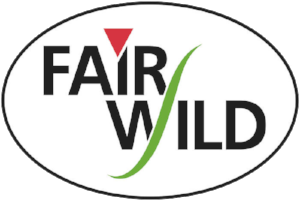Namib Desert Oils
Namib Desert Oils
Namibia
Namib Desert Oils work with their partner, Jojoba for Namibia Trust to source ingredients including Mongongo and Marula raw material, incorporating cultural practices, ecological maintenance and holistic woodland management approaches.
FairWild certified since 2024.
CERTIFIED INGREDIENTS
| Common name | Scientific name | Plant part |
|---|---|---|
| Marula | Sclerocarya birrea | Nut oil |
| Mongongo | Schinziophyton rautanenii | Nut oil |
POTENTIAL INGREDIENTS
| Common name | Scientific name | Plant part |
|---|---|---|
| Devil’s claw | Harpagophytum procumbens | |
| Silver Cluster Leaf | Terminalia sericea |
We strongly believe that the FairWild certification contributes towards our larger vision to encourage endogenous change from within towards a wider societal improvement with its basis on resident values and nature-based innovation. Not just the consumptive utilisation and processing of natural products, but the holistic approach of adding value to what is known and what can be used sustainably. Thus, a renewed recognition and, indeed, promotion of Indigenous knowledge systems through smart partnerships aligning towards amplified benefits and increased access to both natural resources and markets. In short, a true local value chain increase, both through adding value chain links and enterprise diversification. Ultimately ensuring societal improvement for the good, ecological restoration, and fair value-based practice. Jojoba for Namibia Trust is striving to continue and indeed expand our influence in the area and number of FairWild registered resident champions by maintaining and promoting values, practices, and fair operational models. FairWild allows us to expand internationally, share values, and ensure that the collection and trade of wild plants are socially acceptable, ecologically sustainable as a fair enterprise and do not harm the environment.
Moreover, the FairWild Standard helps to create a fair and transparent market for wild plant products. It ensures that the benefits from the trade of these products are shared equitably among all stakeholders, especially resident indigenous communities and small-scale collectors who often have limited bargaining power in the market. This can help to improve their livelihoods and provide them with a sustainable source of income.
Additionally, the FairWild Standard promotes the conservation of wild plants and their habitats. By encouraging sustainable harvesting practices, it helps to maintain the biodiversity and ecological balance of these ecosystems. This is especially important in Namibia, where many indigenous wild plant species are threatened by overharvesting and habitat destruction.
The FairWild Standard also promotes consumer awareness and education about the importance of sustainable and fair trade practices. By choosing products with the FairWild certification, consumers can support the conservation of wild plants and the livelihoods of local communities.
In conclusion, the FairWild Standard has numerous benefits for Namibia's indigenous communities and rural populations. It promotes sustainable and fair trade practices, protects the environment, supports local livelihoods, and raises consumer awareness. By implementing and promoting the FairWild Standard, Namibia can ensure the long-term sustainability of its indigenous wild plant resources and the well-being of its people.”
SALES CONTACT
Oliver Rust
Plot Swakopaue 171, Swakopmund, Namibia



